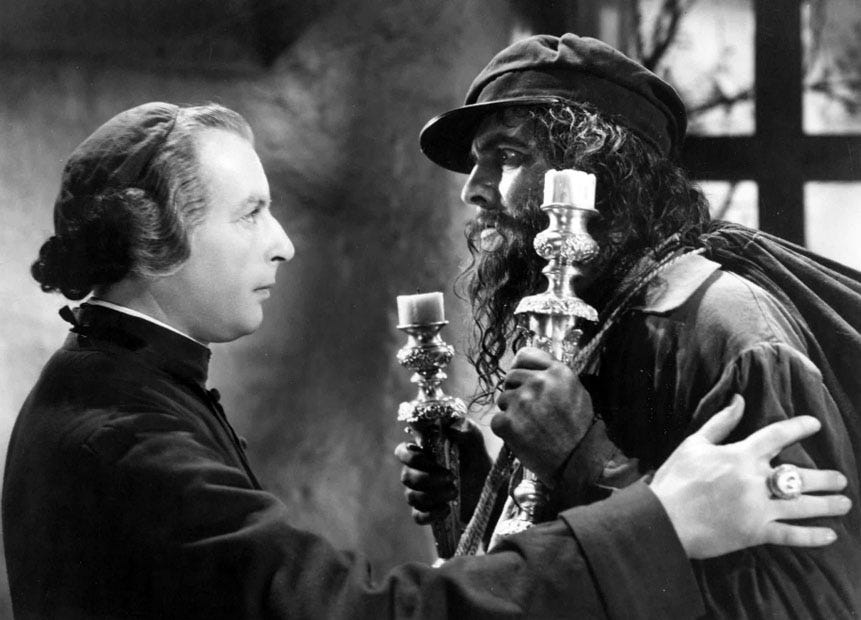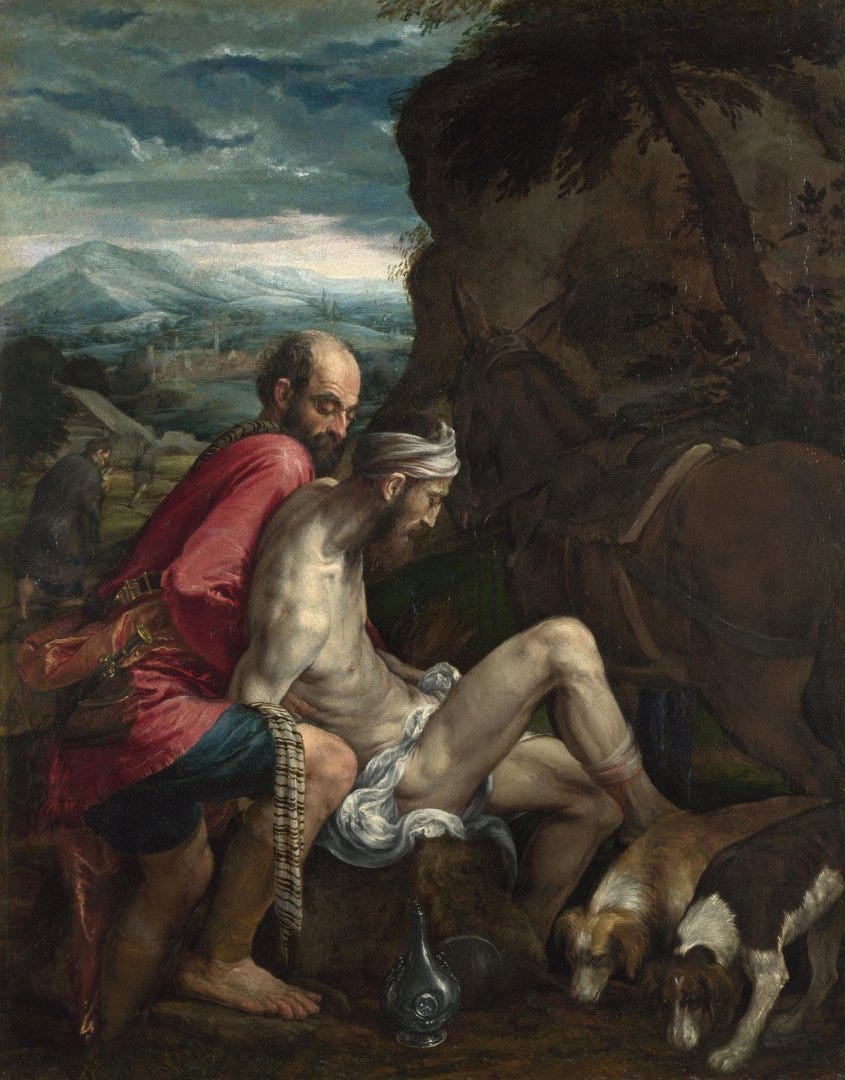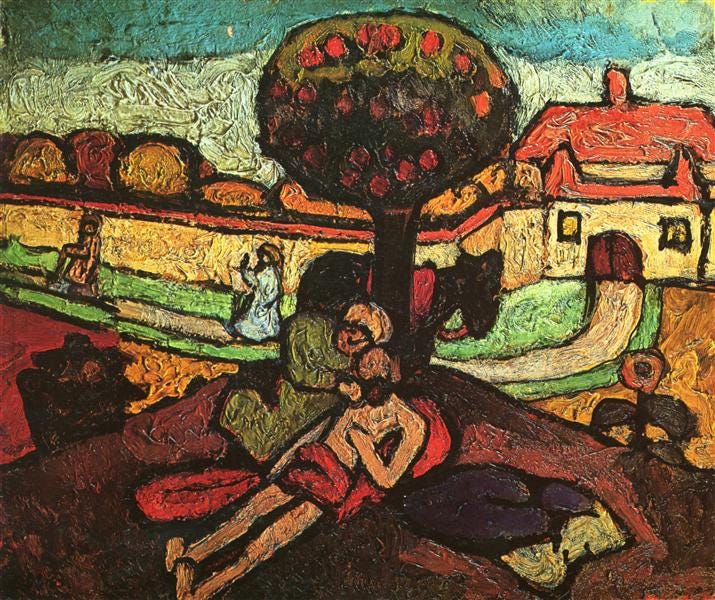Kindness Is Strength
My thoughts after seeing a fool try to abuse someone's kindness

A common yet stupid mistake
More than anything, it baffles me to see someone equate kindness with weakness. It is one of the most cowardly, wimpish, and narrow-minded ideas I have ever encountered. Unfortunately, it is far from rare. If anything, it is becoming more common. The worst part is that the kinder you are, the more likely people will reveal themselves as believers in this profoundly disappointing idea. The script is always the same. You are kind to someone in need, only to receive later either abuse, an attempt to take advantage of you, or, in the best case, an attitude of patronising superiority.
But don’t get me wrong. I am not as kind as I should be! But I’m incredibly fortunate to be close to genuinely beautiful and kind individuals (for example, my wife and eldest son, but keep it between you and me; we don’t want to spoil them!). Maybe, I hope, I am kind enough to appreciate this rare, most valuable quality in others and to strive to become kinder to the best of my abilities.
In any case, my point is that I have been in the front row when people respond to kindness with a smallness that suggests they think it is a sign of weakness. Put differently, kind souls have, as one of their many superpowers, the capacity to reveal the true character of the persons they interact with. This is mainly for the better, but occasionally, it uncovers some nasty realities.
Kindness ≠ niceness or politeness
Now, my real question is, how could someone think kindness is or entails weakness? I'm not a social scientist, but here are some initial hypotheses. If you cannot be generous, helpful or caring, it would not be a surprise to fail at distinguishing between kindness and their more mundane and lesser siblings: niceness and politeness.
As I see them, these other attitudes are prosocial, like kindness. However, they are also compatible with self-interest and do not demand moral courage, imagination, or much reflection, which are characteristics of kindness. Politeness is the minimum requirement for social interaction in normal circumstances (abnormal circumstances might call for suspending politeness, but that’s for a different essay). Niceness, in contrast, is better and goes slightly beyond what is expected. But, often, we are polite because we were educated to be like that and do it unreflectively, or we are nice only because it is advantageous or beneficial. So, there is little to no moral praise for the polite and the nice people among us.
Think about it. Even Santa (or Father Christmas) knows the difference. According to J. Fred Coots’s and Haven Gillespie’s song, he wants children “to be good for goodness' sake.” However, he also has realistic expectations. By Christmas day, he settles for last-minute niceness in exchange for some gifts. Being charitable, Santa’s hope could be that practising niceness will be the gateway to kindness (a species of good action). But there is a gap between niceness and kindness. The latter seems more demanding.
Sadly, the connection is not guaranteed. Someone can be perfectly nice just for the show without being interested in becoming kinder. Worse, niceness is available even to the shamelessly unkind who would be strategically nice to the powerful, in front of the cameras, or as part of a more extended con. And this might be the source of the mistake. Unkind people often read kindness as strategic niceness. Mistakenly assuming that no one is genuinely kind, they interpret acts of kindness as an indirect acknowledgement of a pecking order where they are at the top. So, they’ll cry: “Life is a dirty game, you have to play dirty to win it! Why would anyone do the good thing if not to reap the benefits?” –they’ll wonder.
Kindness exemplified
At this point, it would be fair to ask what I mean by kindness. Two very well-known examples will help me set the scene. The first one is from Victor Hugo’s Les Misérables. The book tells the story of Jean Valjean, who arrives in Digne but cannot find a place to stay for the night because he carries a yellow passport that marks him as an ex-convict. At last, he is taken by bishop Myriel, who feeds him and offers him a place to stay. But at night, Valjean wakes up and steals the bishop’s silverware and silver plates. He is soon arrested and brought back to the bishop. However, instead of acknowledging the theft, the bishop admonishes Valjean in front of the police for forgetting the silver candlesticks he had given him, together with everything else. The police are forced to accept this explanation and leave. Myriel only asks Valjean to use the money from the silver candlesticks to make an honest man of himself.
The second example I have in mind is the Parable of the Good Samaritan (Luke 10:30-35), where we learn that a man who was travelling from Jerusalem to Jericho is robbed, beaten, and left half dead. A priest and later a Levite see him but decide to pass him by. But when a Samaritan sees him, he is moved by compassion, attends to his wounds and takes him to an inn. The next day, the Samaritan gives two coins to the host to take care of the wounded man, telling him that he will repay him upon his return if more money is needed.
The characteristics of kind actions
The examples highlight three features of kind actions. The first is that kindness goes beyond merely meeting our minimal moral duty, yet falls short of proper heroism. Bishop Myriel could have just answered truthfully and tried to ensure the police did not unnecessarily maltreat Valjean. However, what he does goes beyond that, making a considerable difference in Valjean’s life. At the same time, it required no massive risk or huge sacrifice from the bishop, so it would be difficult to classify the action as heroic. Kindness is made of good actions we perform in our everyday lives.
Similarly, the Samaritan could have just asked if the man was okay, promised to send help, or lent him some money. Instead, he goes beyond that by curing the man’s wounds himself and taking him to an inn, paying all his expenses, and ensuring he will be okay. Again, although this makes a massive difference for the wounded man, the Samaritan does not seem to be risking his life or the safety of his family, nor is he giving away all he owns to save a stranger’s life. This is why I think kindness sits somewhere between what is morally required and becoming a hero or a martyr. It deserves the moral praise of someone who does a bit more than the morally demanded, but in a moderated, calculated risk sort of way. Kindness is made of good actions we do in our everyday life, giving until it hurts, but just enough to make it sustainable as a daily practice.
The second feature I want to highlight is the moral imagination and creativity involved in kindness. As I understand it, this moral imagination is the capacity to foresee a full range of options and be creative about the possible ways to make a better moral decision. This is clearest in bishop Myriel’s case. By claiming the stolen goods are his gift to Jean Valjean, he makes it so, which means he is not lying. The bishop realises he can transform a theft into a gift by saying it is so, which is extremely unexpected and a cause of awe. A less morally creative individual would have failed to be as kind as the bishop, even if the disposition and the inclination to be kind were there. The good Samaritan also displays imagination by deciding, among all other possible options, that taking personal care of the man's wounds and taking him and paying for his stay at an inn was the best course of action. His display of humanity was the contrast needed after the horrible ordeal the beaten man had endured.
Kindness’ third feature is that it is a way of caring and being generous that offers a glimpse of our unique individuality. This might explain why we see the bishop’s action as kind, whereas automatically donating money via an effective charity (while also good and generous) does not seem a display of kindness. The latter lacks the personal involvement, the tailoring and attention to detail that a kind person displays to meet someone’s need. Kindness is a personal gift. It has a label with the recipient's name and a personal note from the sender. A kind person knows that kindness takes multiple forms depending on who is meant to receive it. When we are on the receiving end, we not only get help when we most need it, but also get to know someone better and bear witness to a little miracle.
To put it all together, kindness is hard on various fronts. It demands more moral courage than what is required to fulfil our basic duties; it calls for moral imagination, creativity, and personal involvement in caring for or helping others. Moreover, it is, we shouldn’t forget, not motivated by self-interest. These are actions we do without centring ourselves in the decision-making, but, on the contrary, centring others, expecting nothing in return. All this explains why a true act of kindness can only come from a place of moral strength, confidence in one's judgement and talent, and forward-looking magnanimity in the face of the undeserving and the ungrateful.
Kindness as proof of (moral) strength
So, if you really want to prove that you are strong and powerful, you do not need to shout, abuse, belittle or be violent towards those weaker than you. Nor do you need to obsess about becoming muscular, making more money than your friends, having a bigger audience or some other dumb idea celebrated by internet grifters. All you need to prove yourself is to perform a real act of kindness. And then another one, and another one. Better every time. Moreover, if you want to see with more clarity who is weak, too complacent, and dull, look at someone's kindness record (and your own, of course). It will have little to do (and often an inverse relation) with economic status. When was the last time you saw them do something kind for others, especially those outside their immediate circle of concern?
The hidden face of kindness
But I know what you are thinking. There is a missing part of the story no one wants to talk about: a hidden face of kindness. Suppose you are kind to someone. Often, it is an extraordinary act to remedy a need or a bad situation. Like helping the beaten man in the Good Samaritan story or gifting the silverware to Jean Valjean, the stories presuppose that the same need will not arise again the next day and every day after that. Kindness is tailored to a circumstance, but it also has its limits. A kind action doesn't create a duty of future care. If Jean Valjean returns the next day to demand more money from the bishop, he misunderstands what has happened. If the beaten man becomes entitled and expects the Samaritan to pay for his expenses for the rest of his life, he misreads kindness as obligation. But of course, by being kind, neither the Samaritan nor the bishop has taken on a future responsibility. People might decide to extend their kindness if the need remains, but that is a decision and choice that depends on risk assessment and self-knowledge, not an obligation (making the radical choice of taking custodial duty of someone in need for the long run is not kindness, but love, or heroic sacrifice).
But then, what should a kind person do when paid with entitlement and demands instead of gratitude? Here is where we often fail. A kind person might not expect anything in return, not even gratitude. But surely that includes not being faced with audacious people demanding what they no longer need or deserve. The hidden face of kindness is the capacity to respond to audacity with clear, and if necessary, blunt and firm, yet respectful denial of these requests. Kind people cannot be shy or too nice about it because they must allocate their kindness towards those who really need it. Sometimes, doing this can result in confrontation, a nasty, over-the-top reaction and slander against one's reputation. Remaining calm, confident and clear-headed is the hardest part. One needs to survive these occasional disappointing outcomes without breaking bad, becoming too cynical or detached, although a certain amount of rightful indignation seems appropriate. This is why kindness comes from and is a sign of extraordinary moral fortitude and clarity: kindness is strength.
Some questions and topics to continue the conversation
Is kindness a virtue? Some think it is (see here), some do not (see here).
How do we extend our kindness? The Confucian philosopher Mengzi might be of help (see here).
Are children capable of genuine kindness? The idea, at least, is not new. It is found, for example, in Rousseau's Emile.
Should our acts of kindness aim higher than merely alleviating someone’s immediate needs? Can kindness be used as a political tool to transform society? Some insights from Black feminist pedagogy and radical kindness here.





